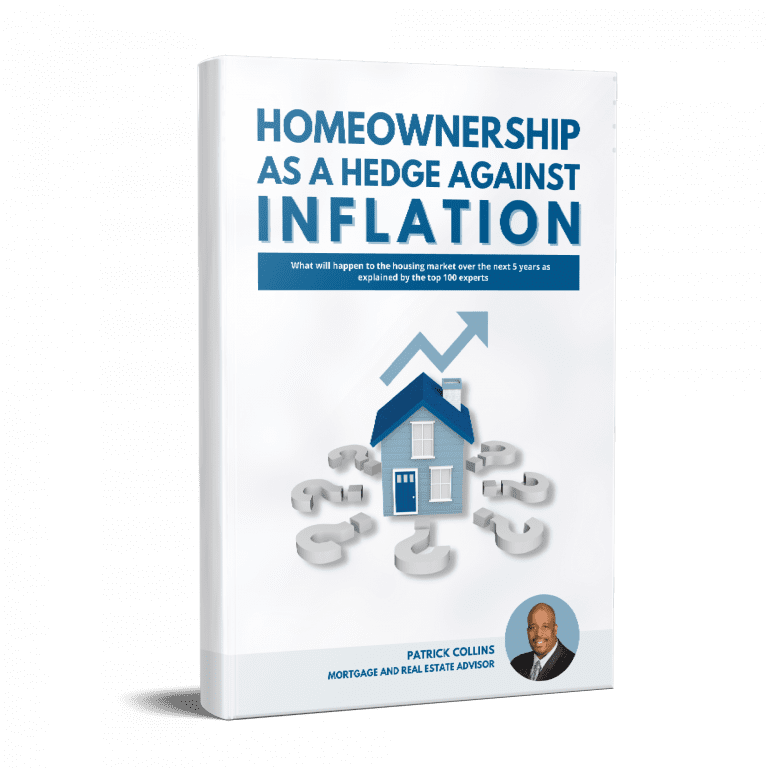
A Non-Qualified Mortgage (Non-QM) is a loan that doesn’t meet the standards of a qualified mortgage and uses non-traditional methods of income verification to help a borrower get approved for a home loan.
Non-QM loans fill the gap for borrowers who may be self-employed, have non-traditional income, or have had difficulty qualifying for a QM loan due to credit issues in the past. Non-QM loans have underwriting guidelines that allow the lender to view the “bigger picture” of your financial history thus determining a borrower’s ability to repay in a slightly different lens than usual.
We’re here to make the (Non-QM) home loan process a whole lot easier, with tools and expertise that will help guide you along the way, starting with our FREE (Non-QM) Loan Qualifier.
We’ll help you clearly see differences between loan programs, allowing you to choose the right one for you whether you’re a first-time home buyer or a seasoned investor.
Whether you’re a business owner, entrepreneur, investor, or free-lancer; we can help you with your loan qualification. Get a mortgage using your real income.
A Non-Qualified Mortgage (Non-QM) is a type of loan that falls outside the standard rules set by the Consumer Financial Protection Bureau’s (CFPB) qualified mortgage guidelines. In other words, it doesn’t meet the typical underwriting criteria that most traditional loans adhere to. These loans are typically free from tax returns and W2’s.
So, who stands to benefit from a Non-QM loan? Here’s a rundown:
Self-Employed Individuals: Traditional loans often require a stable income history, something that self-employed folks might struggle to demonstrate. Non-QM loans may accept alternative forms of income verification.
Investors: Those who are looking to finance multiple properties may find more flexibility with Non-QM loans.
People with Credit Issues: If you’ve got a lower credit score or a blemish on your credit history, Non-QM lenders are generally more lenient.
Foreign Nationals: These loans can help people who are not U.S. citizens and might not have a traditional U.S. credit profile.
High Net Worth Individuals: Those with significant assets but irregular income can benefit from asset depletion loans, a type of Non-QM loan.
Those Seeking Unique Loan Structures: Non-QM loans offer features like interest-only payments, which are generally not available in qualified loans.
Recent Homebuyers: If you’ve just sold a home and haven’t yet received the proceeds, a Non-QM loan can bridge the gap.
Remember, Non-QM loans often come with higher interest rates and may require larger down payments. It’s crucial to weigh these factors and consult professionals to determine if it’s the right fit for your situation.
Before you can understand what a Non-Qualified Mortgage (Non-QM) is you first we need to understand what a Qualified Mortgage (QM) is. A Qualified Mortgage has typical standards that require W2 income, 2-year tax returns, dept to income no more than 43%, etc. These minimum standards for a qualified mortgages are part of the 2010 Consumer Protection Act and Dodd-Frank Wall Street Reform Act brought on by the Great Recession in 2008. However not everyone fits these standards.

An interest-only jumbo mortgage is a specialized home loan designed for high-value properties, typically allowing loan amounts up to $5 million. These loans let borrowers pay only the interest for an initial period—commonly 10 years—before converting to a standard amortizing mortgage.
Interest-only jumbo loans are ideal for borrowers who:
Interest-only jumbo mortgages can provide short-term cash flow advantages and flexibility, but they require careful planning. Evaluate whether the initial savings and investment potential outweigh the long-term costs and risk of payment shock.
For borrowers with variable income, substantial liquid assets, or strategic investment plans, an interest-only jumbo mortgage can be a powerful financial tool, provided the future repayment obligations are fully considered.
For real estate investors, a Non-QM (Non-Qualified Mortgage) DSCR loan can be a powerful tool. Unlike traditional mortgages that focus on personal income, these loans assess a property’s ability to generate enough income to cover its mortgage.
A Debt Service Coverage Ratio (DSCR) Mortgage evaluates loan eligibility based on the property’s rental income, not the borrower’s personal income.
A 1099-Only Mortgage is designed for borrowers who earn income as independent contractors or through commissions and cannot provide traditional income documentation, such as W-2s or full tax returns. This program allows you to qualify for a mortgage using only your 1099 forms from the past two years, making it ideal for self-employed individuals or those with non-traditional income streams.
This mortgage program is perfect for borrowers who:
The program verifies your income by retrieving 1099 transcripts from the IRS via Form 4506, ensuring all reported income is valid and filed by the issuing party.
An Asset Utilization Jumbo Loan, also known as an Asset Depletion Mortgage, is designed for borrowers who may not have traditional income streams but possess significant liquid assets. This program allows lenders to calculate qualifying income based on assets such as savings accounts, retirement funds, and investment portfolios, making high-value home purchases accessible even without standard W-2s or pay stubs.
A Bank Statement Jumbo Mortgage is a specialized Non-QM (Non-Qualified Mortgage) designed for borrowers who cannot provide traditional income documentation, such as W-2s or tax returns. Instead, lenders use your personal or business bank statements to verify income. This program is ideal for self-employed entrepreneurs, freelancers, and business owners whose earnings may not be fully reflected on conventional tax filings.
A Multi-Family Commercial Mortgage is specifically designed for financing properties with 5 to 8 residential units. These loans often fall into the jumbo category due to higher loan amounts. Lenders evaluate not only the borrower’s financial profile but also the rental income potential of the property, making cash flow a central factor in qualification.
A Foreign National Jumbo Loan is designed for individuals who want to purchase or refinance U.S. real estate but may not have a Social Security number, green card, or permanent residency. These loans are ideal for foreign investors, expatriates, and individuals living abroad who want to invest in residential or investment properties in the United States.
These are portfolio loans, meaning they are held by the lender and are not tied to government-backed programs. Qualification focuses on the borrower’s financial strength and documentation, rather than U.S. credit history or residency status.
Key features include: